Kalvin Phillips’ Absence: The Key Reason Behind Leeds United’s Vulnerability in Transition
After a long-awaited promotion from the Championship, Leeds United’s first season in the Premier League was blustery. Among the promoted teams in the Premier League, Leeds’ 9th position was the record for the highest position after Ipswich Town in the 2000/01 season. But in the season 21-22, everything started to change.
The start of the new season was so bad that Marcelo Bielsa’s players lost 5-1 to Manchester United at Old Trafford. The whole season is going badly for Leeds due to the injuries and off form of the key players.
Leeds conceded a record 20 goals in the league in February. Marcelo Bielsa, the key to the team’s success, was sacked a few days ago due to the continuous poor form of the team. Although Jesse March has been appointed as the new coach, the situation has not changed much.
They are now in 16th position in the league table. Despite falling behind 2-0 against Wolves, the Peacocks’ are now a little bit above the relegation zone due to a great comeback at 3-2. But it remains to be seen whether Leeds’ will be able to play in the Premier League next season.
The Whites have already conceded 67 goals in this season, with only 34 goals in the opposition’s net and they scored 62 goals last season. The biggest reason behind Leeds’ inability to concede or score goals is their failure in transition.
Under Bielsa, Leeds was playing in a 4-1-4-1 formation, but this season due to injury issues Leeds’ has been seen operating in a 3-3-1-3 formation in many matches.
A high number of Leeds’s footballers move in the final third in the attacking phase, creating huge free space in their own defensive half. To destroy the opponent’s quick counter, Leeds needs someone who can anticipate the opponent’s attack.
Bielsa has played Kalvin Phillips in the role for so long, but this season Phillips has only played 999 minutes in the league due to injury. Bielsa has tried Robin Koch, Forshaw, Pascal Struijk and Jamie Shackleton to fill his place.
But unfortunately, none of them made up for the lack of Phillips. As a result, as Leeds’ defensive line suffered in front of the opponent’s counter, they also had to suffer doing a quick offensive transition attack.
Although Bielsa has used several players in the role of Phillips, Robin Koch has appeared in the role the most of the time. So now we’ll look at how effective Phillips was as a pivot last season and how poorly Koch has performed in the same position this season.
Kalvin Phillips
If you consider the direct contributors to Leeds’ success last season, Phillips’ name might not come up first, but his contribution in Bielsa’s first transitional football was crucial for the team.
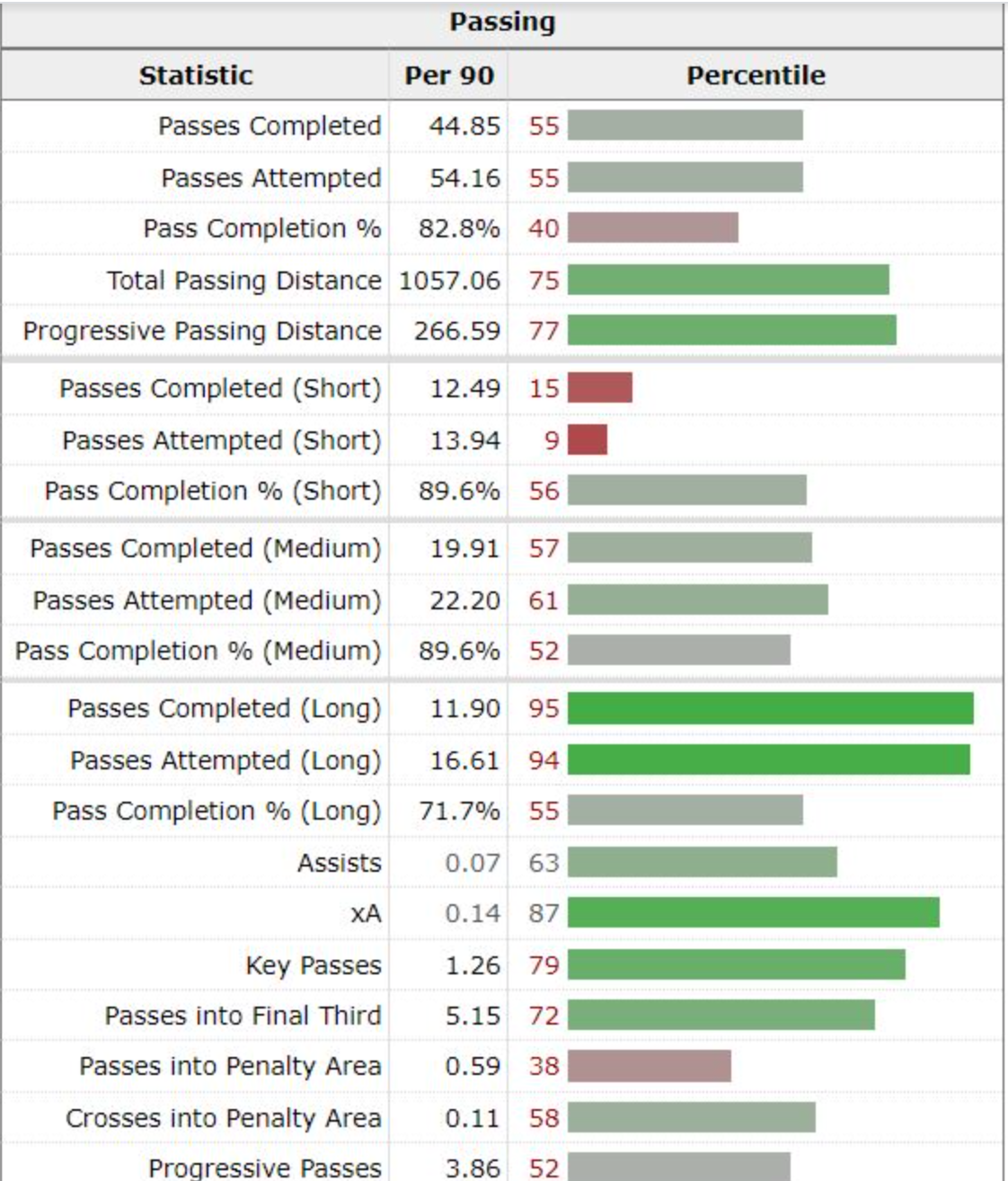
The graph above displays Philips’ passing statistics of last season. He didn’t play a big part in Leeds’s build-up from the back, thus he wasn’t seen making quick short passes to his teammates. In order to spread the play, he attempted quick long balls through the touchline.
In terms of long passing efficiency, Phillips is one of the best in the Premier League. Leeds’ fast counter-attacking system relies heavily on his long passes.
If we talk about a common attacking pattern of Leeds United, their center backs would hold the ball among themselves and invite opposing forward players to press.
Phillips would then attempt a long ball to Raphinha, who is free on the right flank, from just below the halfline.
Leeds’ right-back Luke Ayling makes a forward run into the right half-space at the same moment. Raphinha takes a diagonal ball out of the box, aiming for Ayling from the touchline, from which he would try to take a low cross or minus from which Bamford may try to score.
Phillips’ contribution to Leeds’ defensive transition is essential. Except for two Leeds center backs and Phillips, everyone is in the final third at the time of the attack.
As a result, if they lose ball possession in the final third, the opponent will easily get a chance to come up front with a counter attack. Phillips aggressively tried to kill the opponent’s counter-attack in this situation by pressing and, if necessary, making a tactical foul.
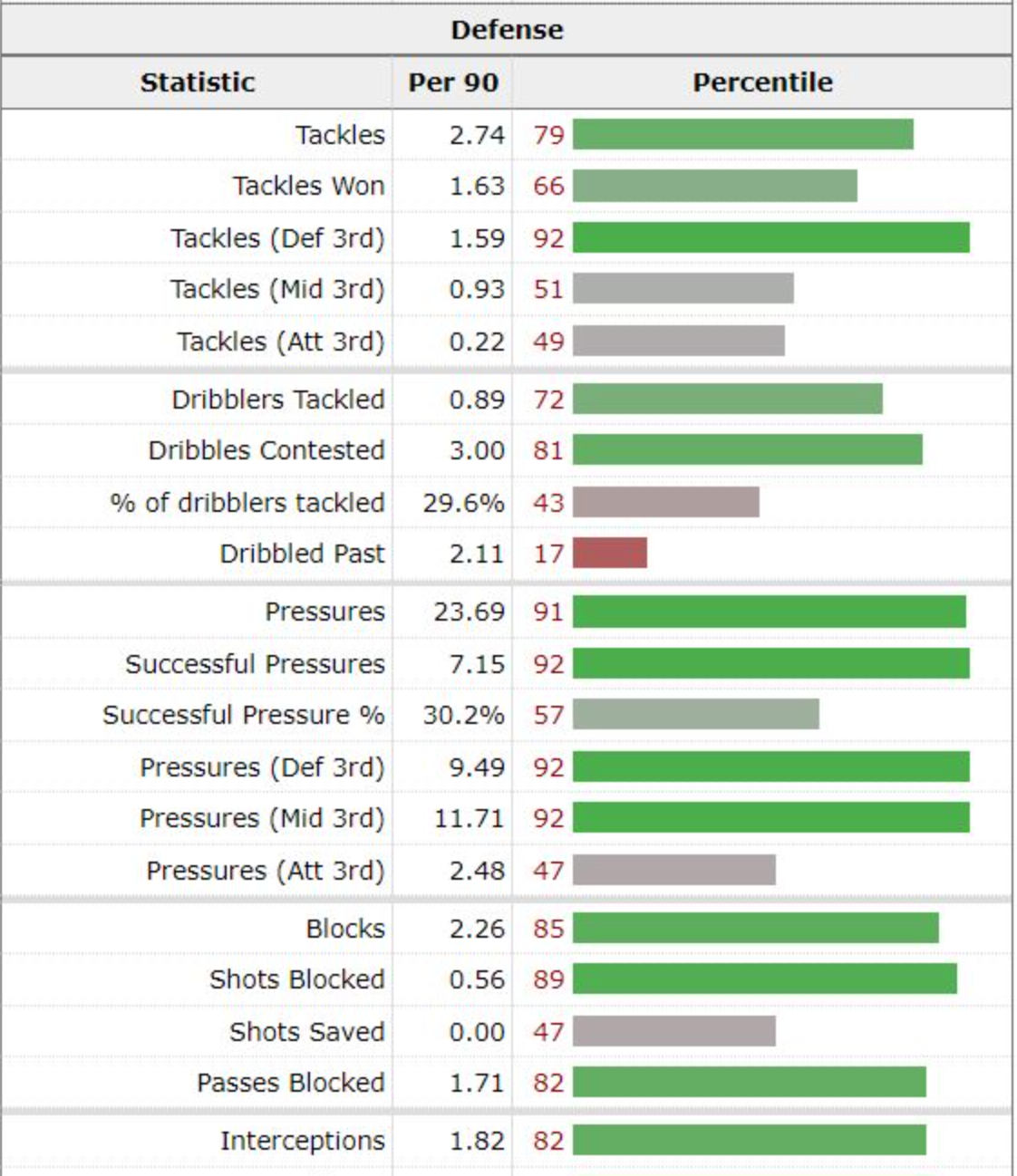
If you look at the data chart above, Phillips was statistically one of the best footballers in the Premier League last season in terms of off-the-ball activity.
He was incomparable in regaining the ball possession by pressing the opponent’s forwards, or destroying their playing system by directly marking their main creator.
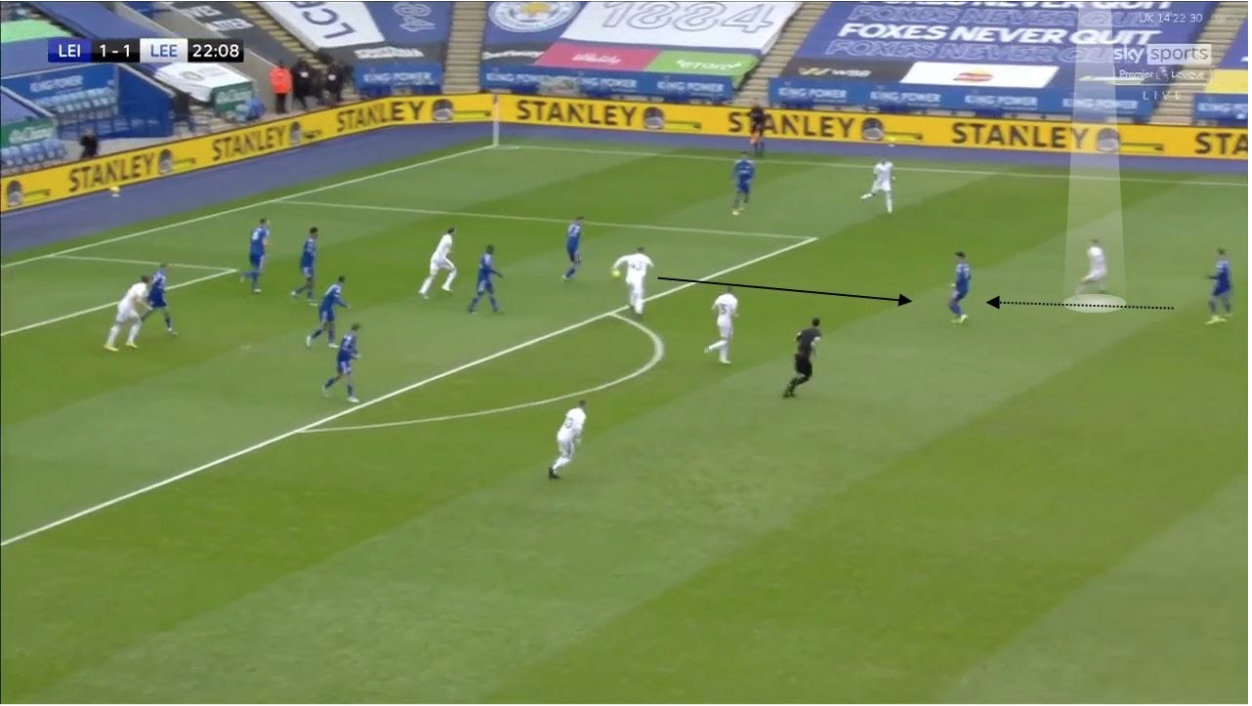
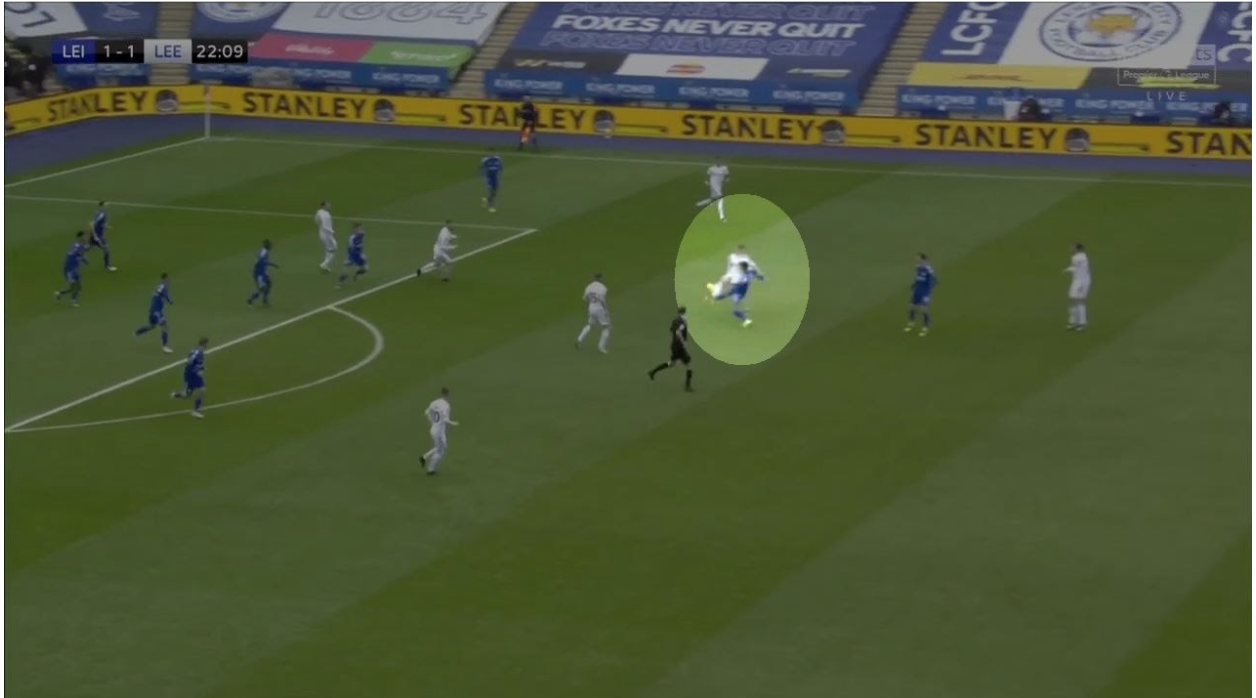
The aforementioned example is from a match against Leicester from last season. Harvey Barnes blocked Raphinha’s cross and promptly passed to Ayoze Pérez. However, Leicester’s potential counter-attack was denied by Phillips’ stunning interception from behind.
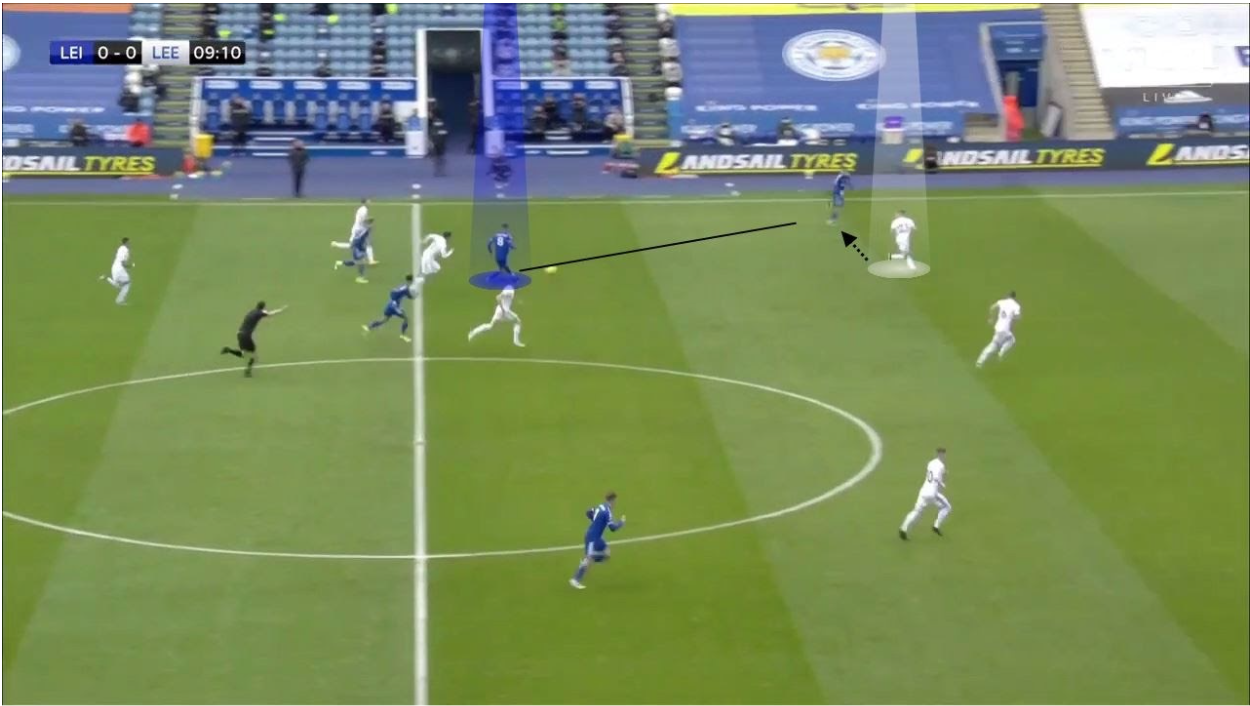
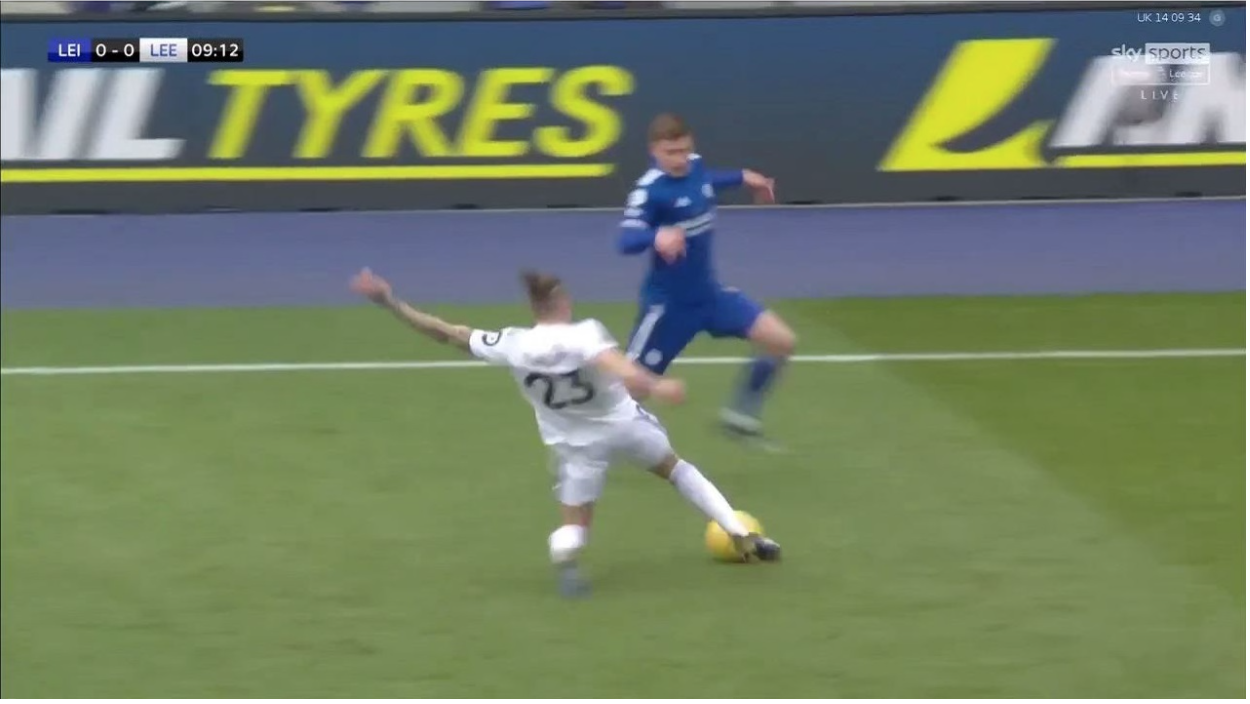
Leeds’ full-backs push high up in the offensive phase, which creates a lot of open space in the wide regions of their defensive third.
As a result, when they lose possession of the ball, the wide areas become exposed, giving the opposition a good opportunity to exploit them. Phillips appears at this period to cover the region with his work rate and quick movement.
Robin Koch
Due to Phillips’ injury, Koch has been seen as a pivot in the most of games this season. Koch, though, who is a natural center-back, struggled as a single pivot. His primary issue is that when he moves up front, he doesn’t track back in time, creating a vulnerability in Leeds’s defensive half.
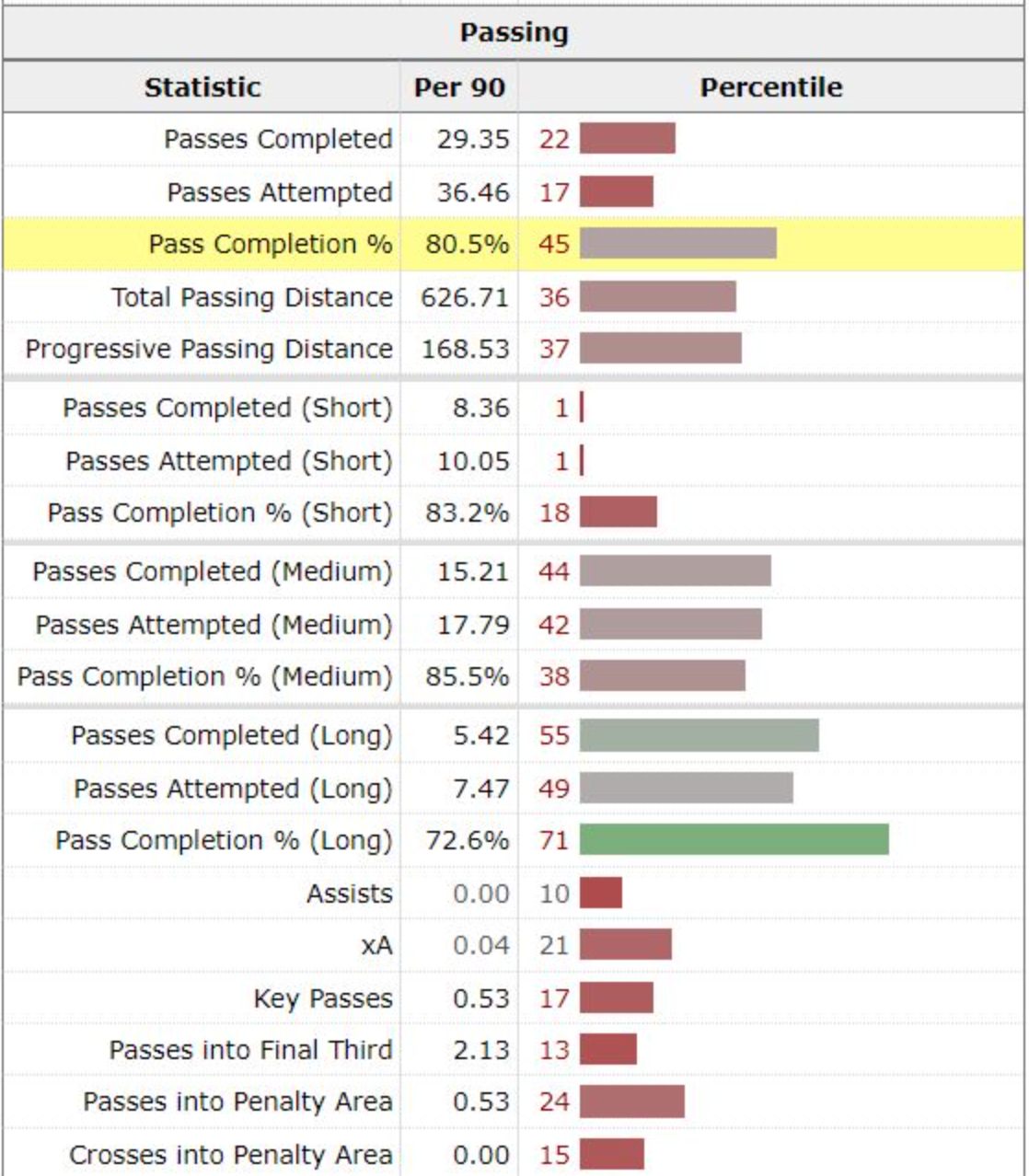
Koch’s passing statistics during the season are rather bad for a midfielder. He is rarely seen switching long balls in open spaces, preferring instead to play safe side passes to his nearest teammates. Koch’s mentality is creating issues for Leeds’s attacking system.
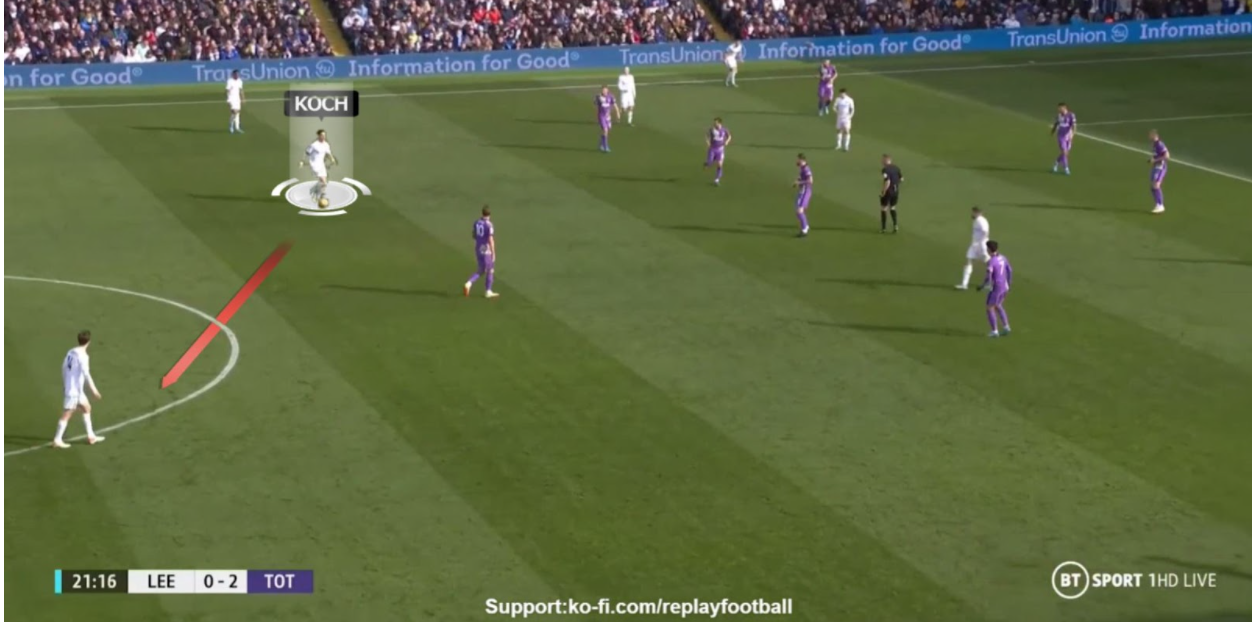
In the case above, Koch received the ball in a lot of open space in midfield, and Harry Kane did not even try to press him. Raphinha moved to the right wing, while Ayling ran into the right half-space.
As a result, if Koch attempted a long pass to either Raphinha in the wide area or Ayling inside the box, there was an opportunity to create a goal-scoring situation. Instead, Koch passed the ball to Llorente, who was close by.
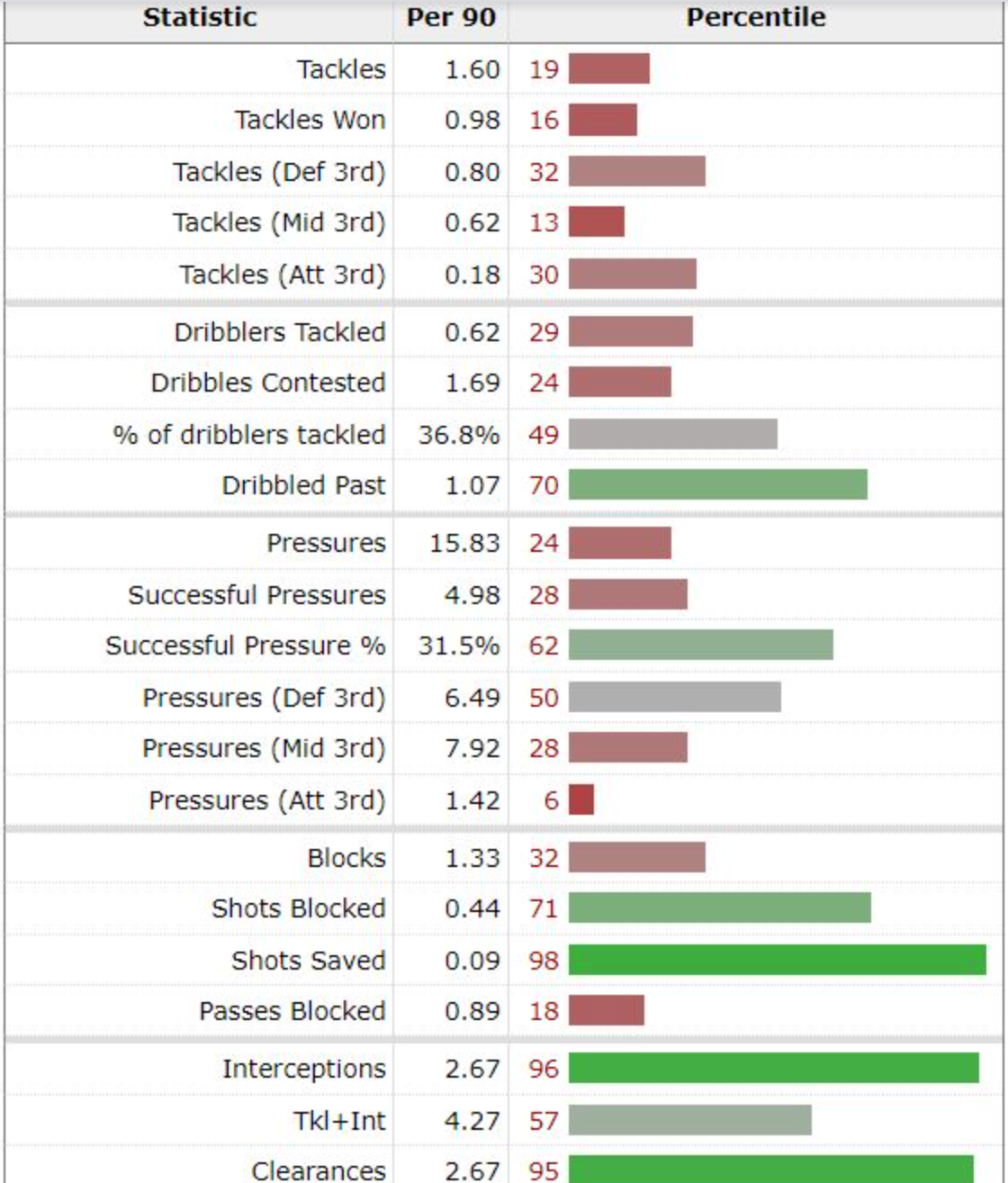
Koch’s off-the-ball performance comes nowhere close to Phillips’s. He can be considered a decent center-back due to his interception and ball clearance abilities. However, as a pivot for a side with high intensity pressing, such as Leeds, his pressing rate is far from ideal.
Leeds’ other two midfielders generally push high up on the pitch, so the player in the second pressing line must play a crucial part in defending against the opposition.
However, opponents can easily cross Leeds’s mid-pressing line because of Koch’s poor pressing, putting all the pressure on the defense. They conceded the majority of the goals in this situation because the defenders are disorganized most of the time.
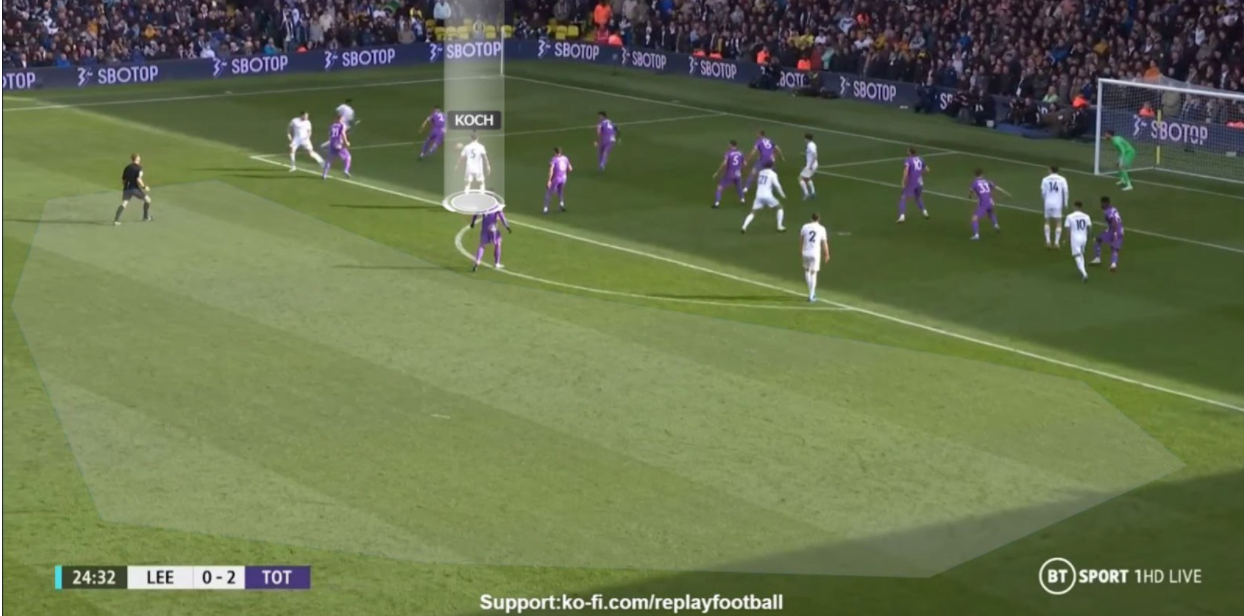
Koch moved to the box during the attack in the final third instead of staying around zone 14, resulting in eight Leeds players in the Tottenham box at the moment. Son Heung-min who stayed outside the box was completely man marking free.
As a result, Leeds’ lost the ball possession and Tottenham got a golden opportunity to counterattack using the free space behind.
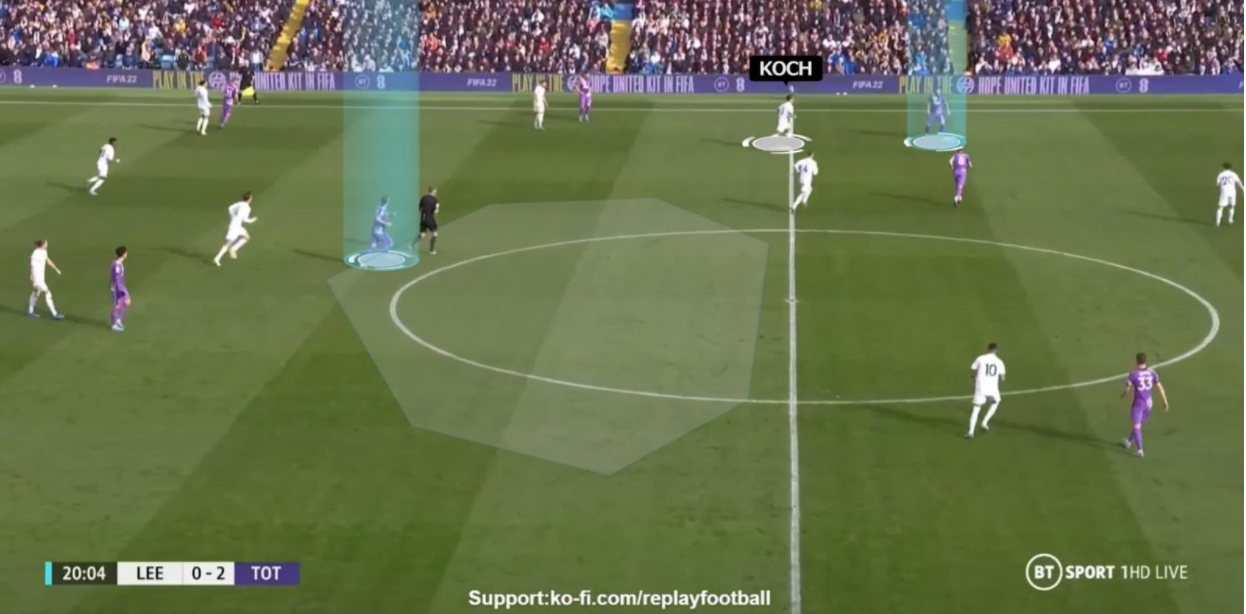
Koch departed his position and moved out of position while pressing. As a result, the central area in front of Kane was completely open.
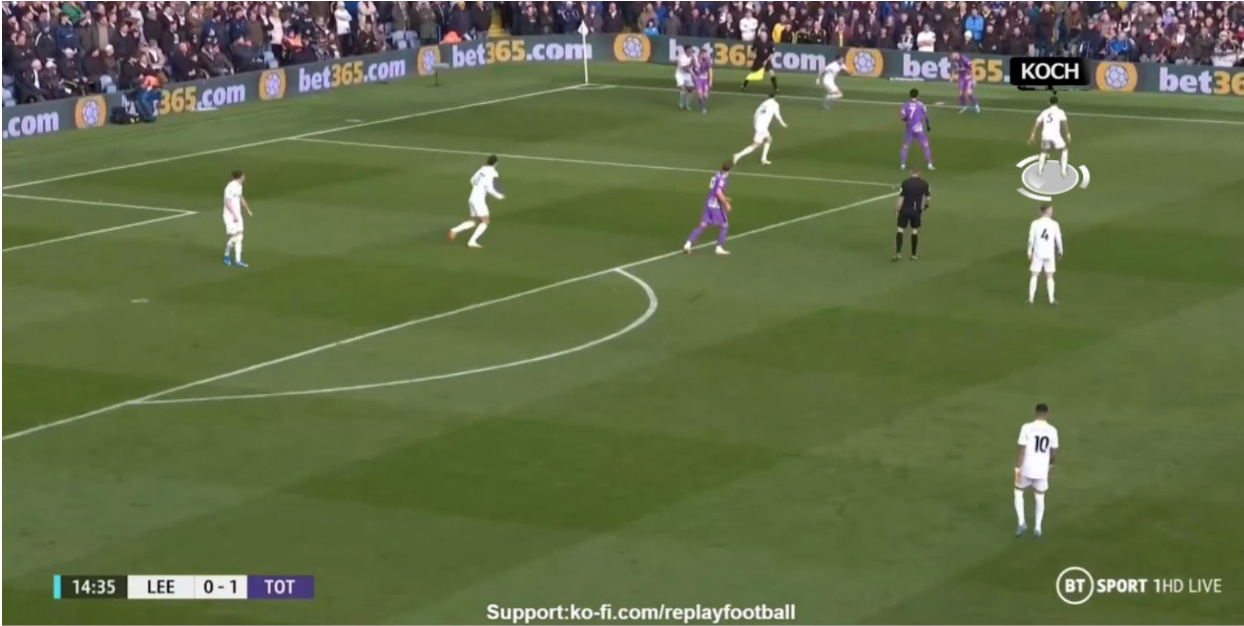
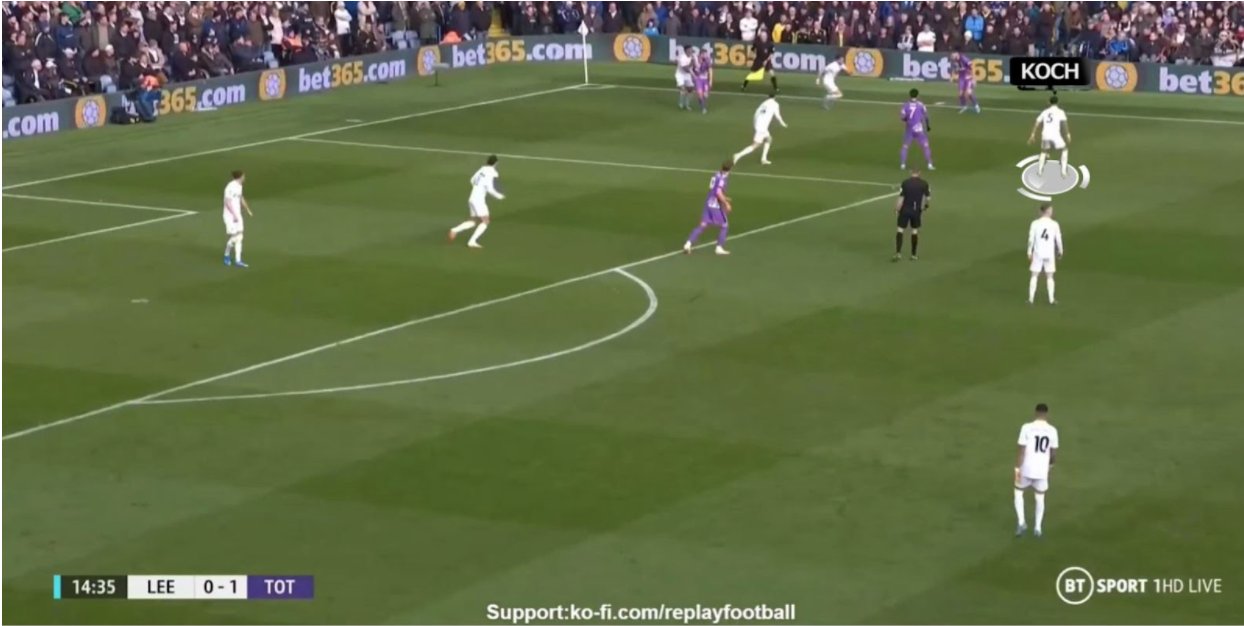
Koch was standing outside Leeds’s box during Tottenham’s attack on the right wing. Kane then held his position on the edge of the box.
Dejan Kulusevski cut inside the box after receiving the ball from Matt Doherty, and all of Leeds’ players tried to block the ball by pressing him. Koch made no effort to press Kane or block Kulusevski even then.
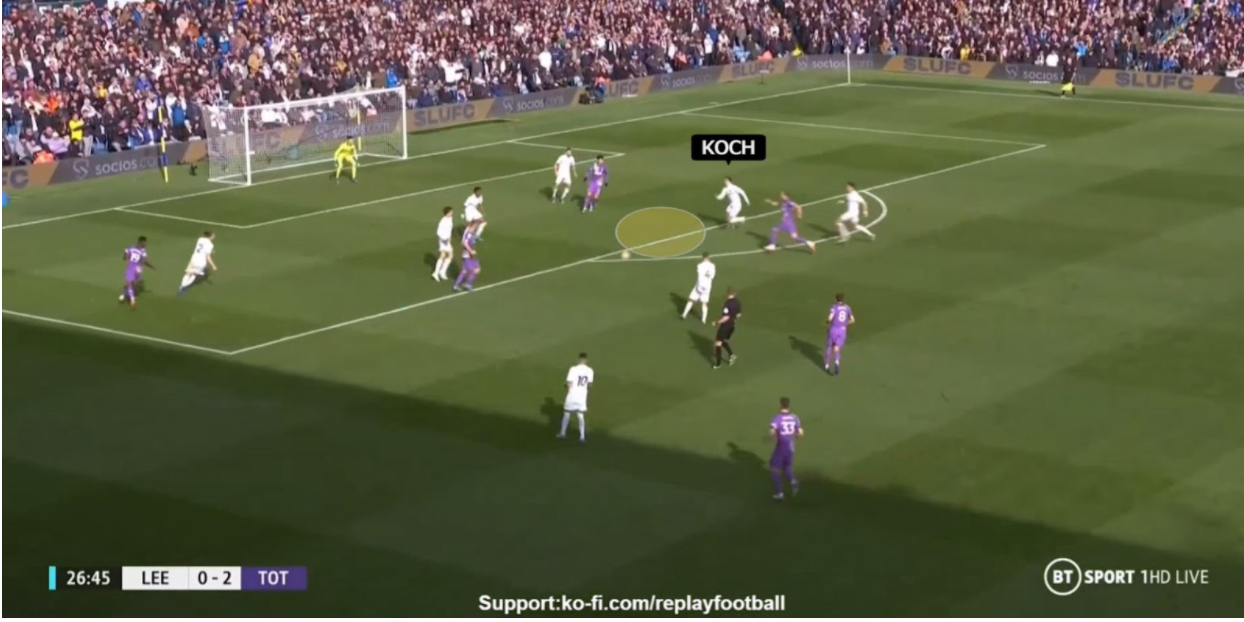
Kane received the ball from Kulusevski’s minus outside Leeds’s box and tried to make a shot attempt. Koch was in responsibility of marking Kane at that time, but his sluggishness allowed Kane to take the shot. Llorente, on the other hand, prevented Kane from getting a goal.
Because of his injuries this season, Phillips’ value to Leeds is widely acknowledged. The major cause for their numerous goals conceded is their weaknesses in transition. After Phillips’ injury, Bielsa was unable to find a replacement for the pivot role, and as a result, he lost his job.
By: Amartya Das Dip / @amartyadasdip
Featured Image: @GabFoligno / Laurence Griffiths / Getty Images
